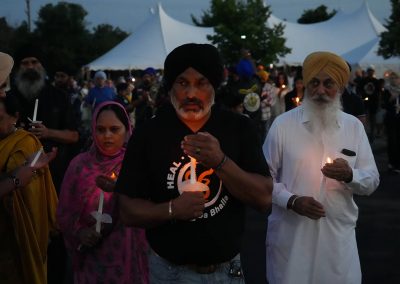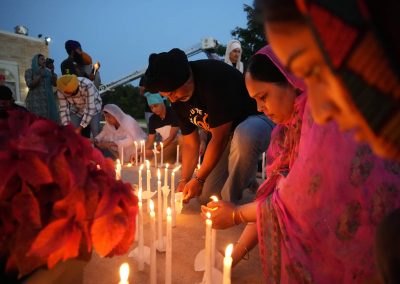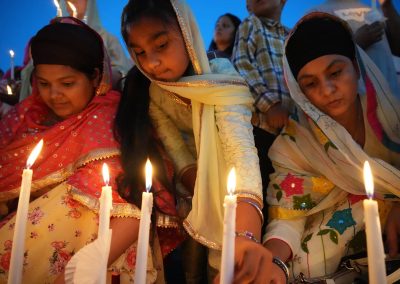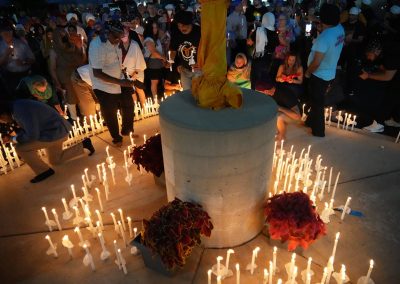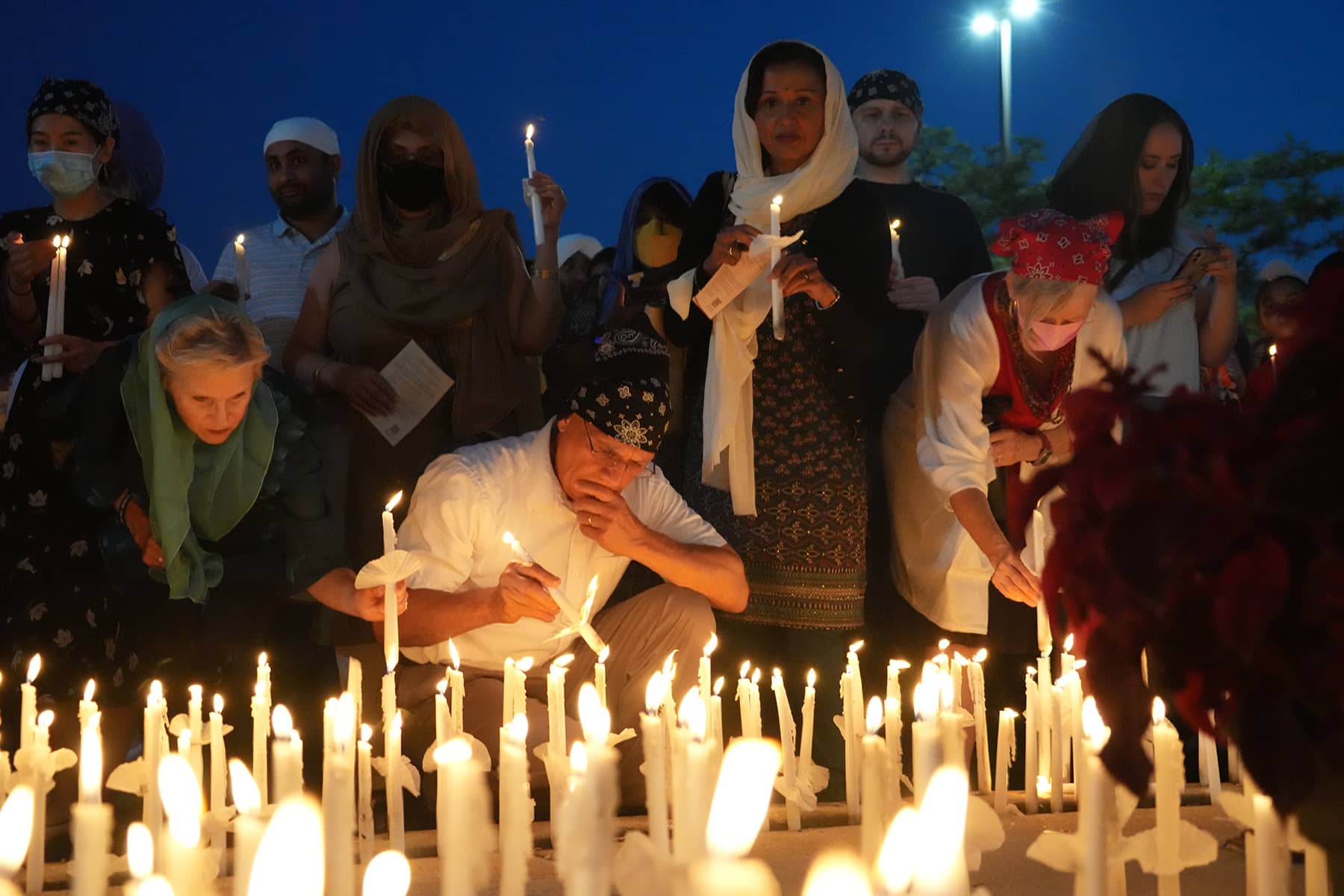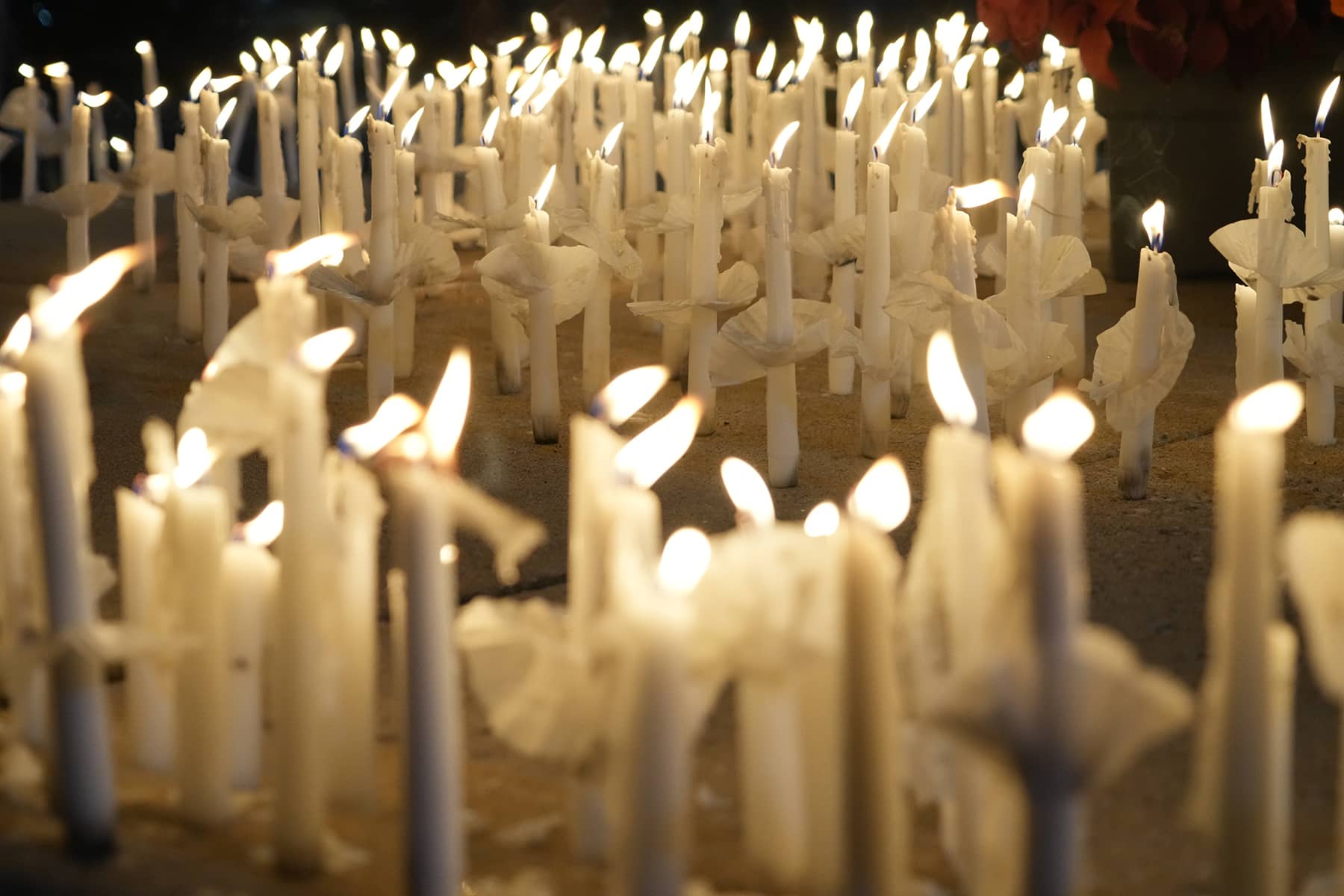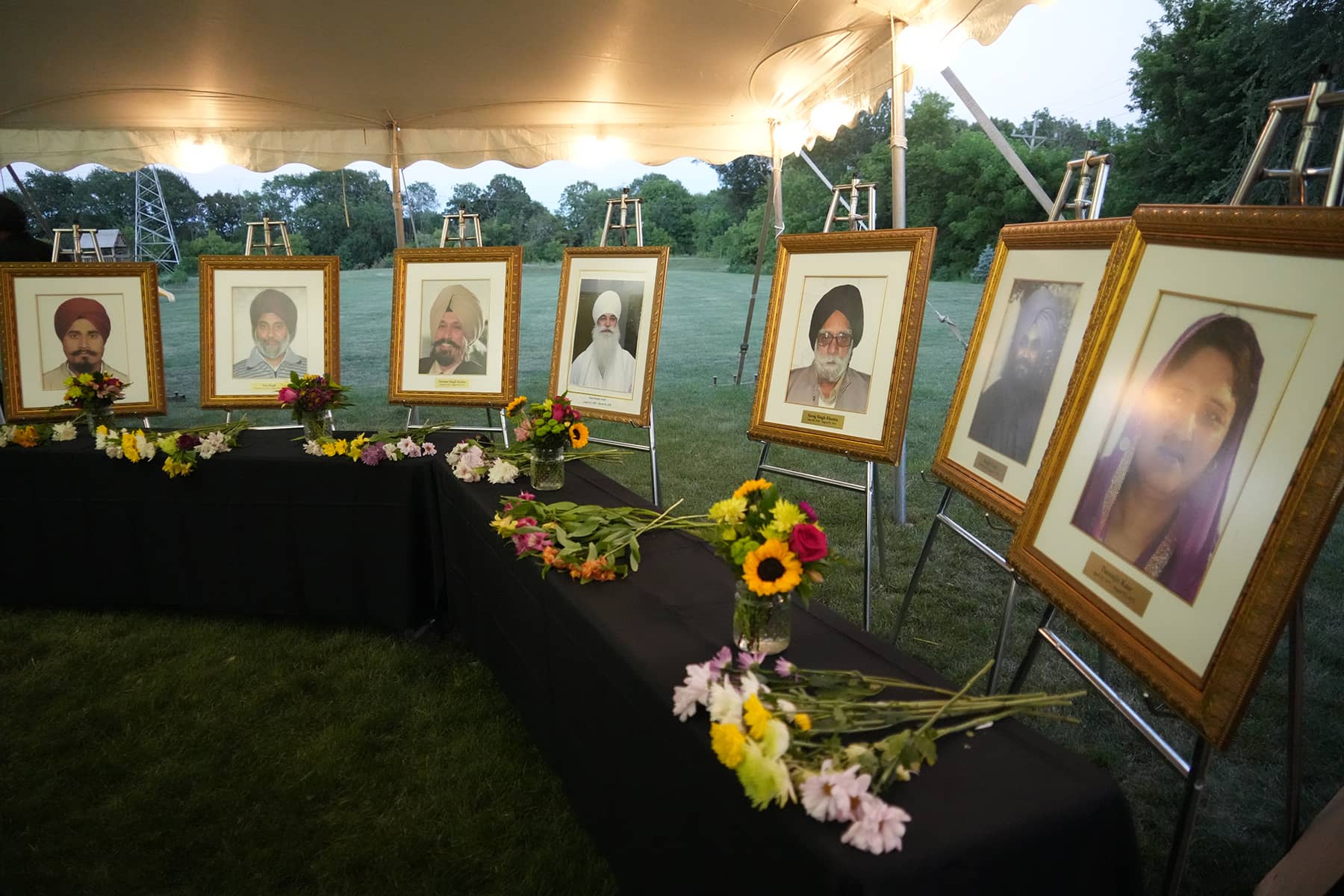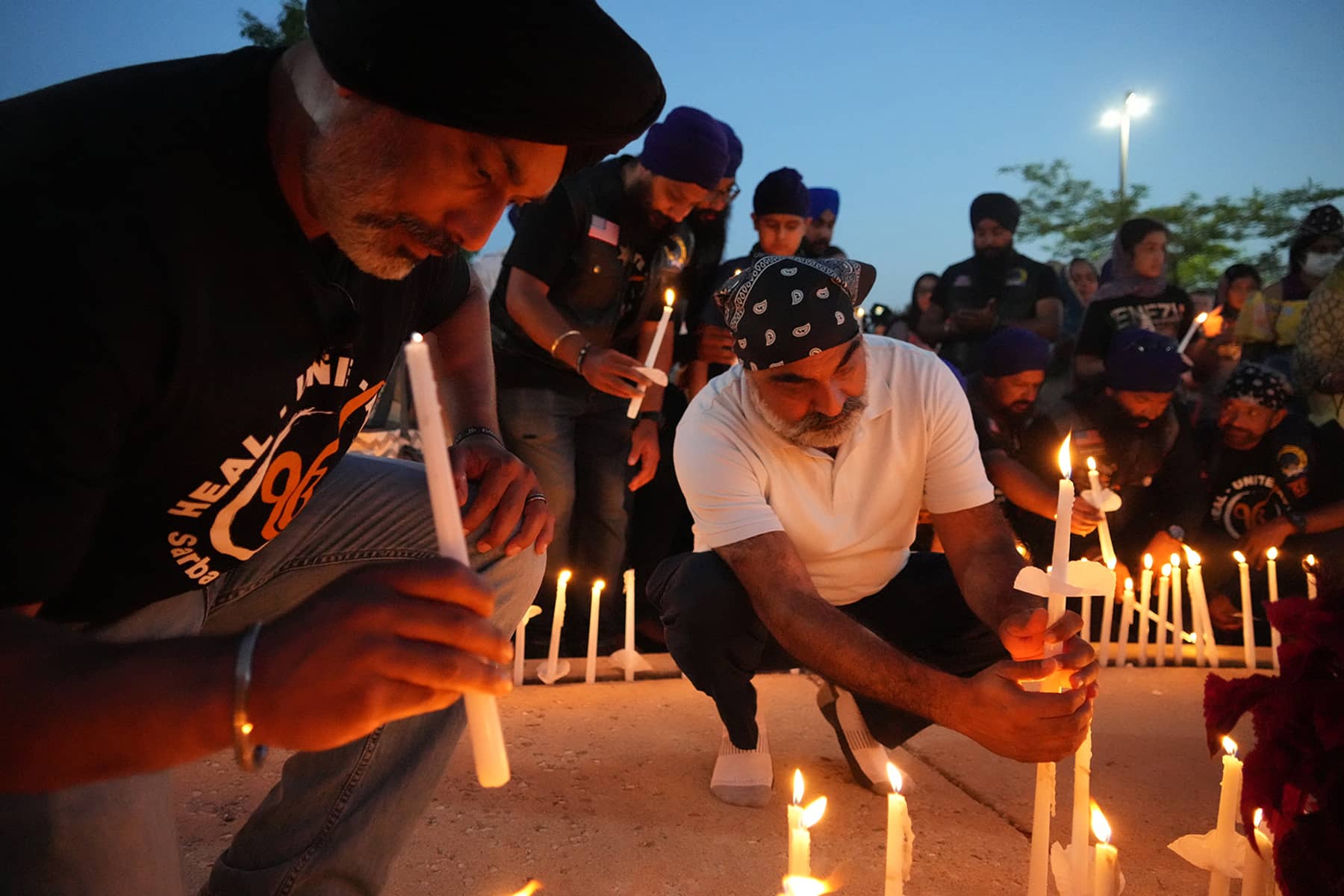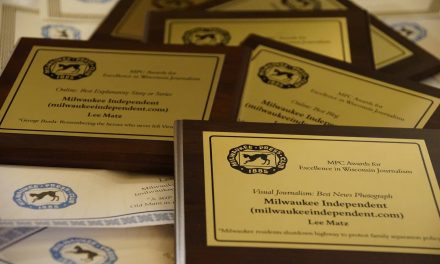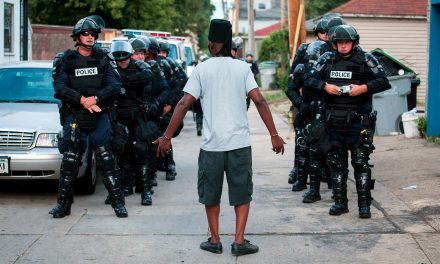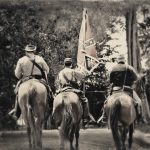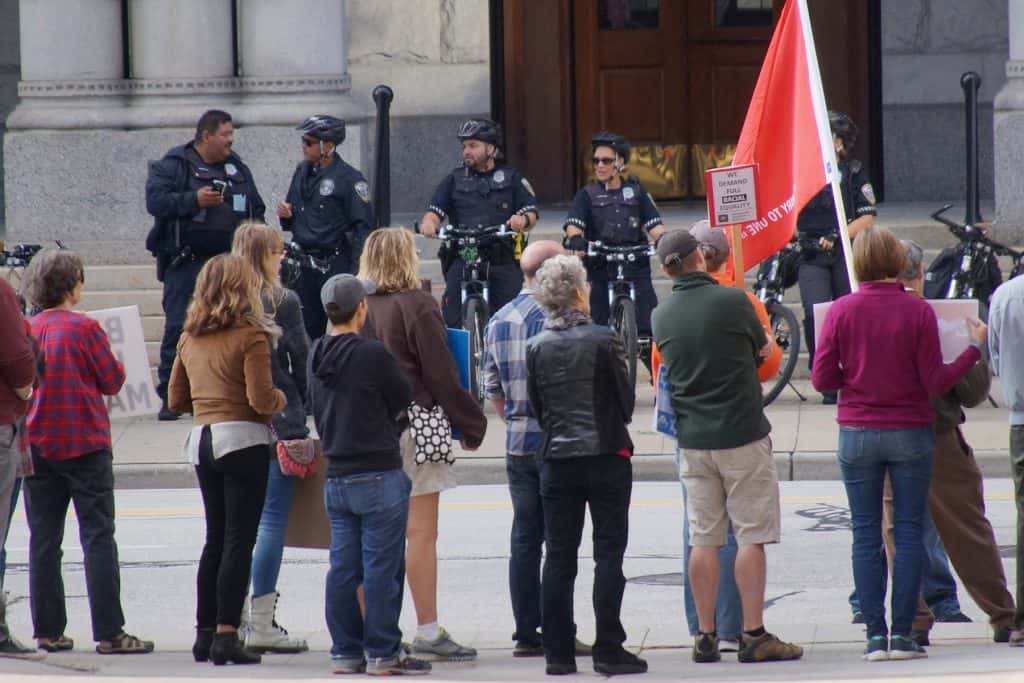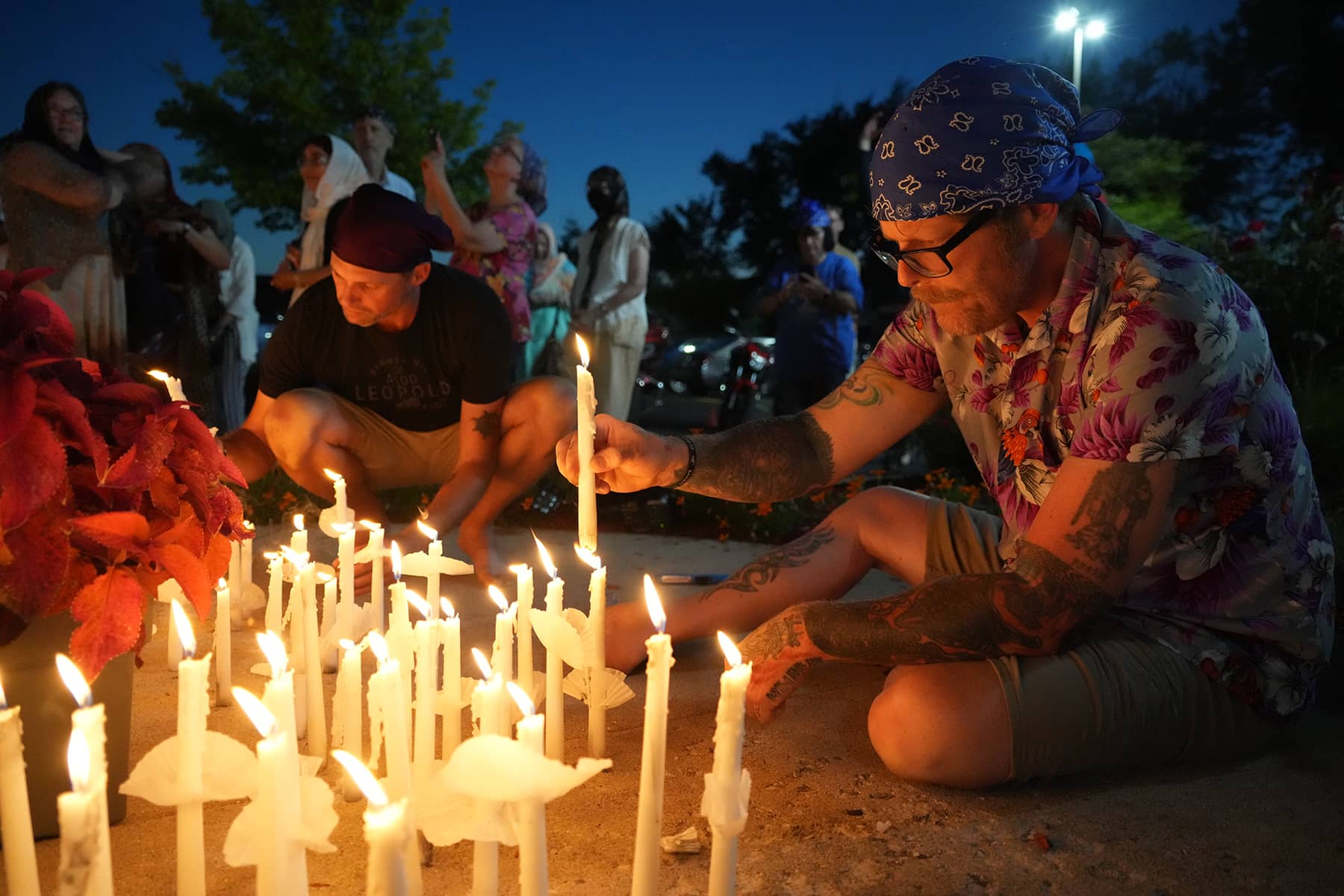
For my parents generation, I remember the TV news would always ask people where they were when President John F. Kennedy was assassinated. For my generation, in the early years of the new millennium, the question TV news asked was where were we on September 11 when the towers fell. Yet in the decade since the Sikh Temple of Wisconsin massacre, I have never seen anyone asked where they were on August 5, 2012.
Perhaps the TV news has asked the question over the years and I missed it. But I have reflected on this question, and what it means when we ask such things on anniversaries. Why are some tragic events seared into our collective memory while others fade from consciousness? What qualifies a horrific event to be elevated above all others?
Memory also has a habit of playing tricks on our mind. What I remember and closely associate with first hearing about the Sikh Temple mass shooting was not actually my first experience, just the one that stands out when I look back.
In the summer of 2012 I had been back in America for just over a year, after being left a refugee from the 2011 Tōhoku earthquake and tsunami which destroyed my home in Japan. With that trauma and the culture shock of what America had become in my decade-long absence, I was in the process of moving back to Japan. By that August I was just waiting for my work visa to clear the embassy in Tokyo.
At the time, I still looked at America as a foreign country, where even though they spoke English I did not understand the racial and political meanings behind what people said. I had gone overseas to hone my professional skills and enhance my career with valuable life lessons. By the time I had returned to Milwaukee to apply those experiences, I was shut out of the job market and I could not find a way to fit in. I reasoned that if America did not want me then I did not need to be here.
So I remained detached from Milwaukee, expecting that I would be returning to Japan, and I just needed to tolerate the time until I left. I felt then – as I do now – that we reap what we sew. If we as a society cannot manage the distribution of military-grade weapons and who has access to them, why are we surprised and outraged when mass shootings occur? If every pantry in a home was stocked with decorative cans of cyanide, would we ask how a child was able to ingest poison?
I learned of the Sikh Temple mass shooting while scrolling headlines on my laptop, because I do not watch broadcast news. I found the local massacre to be shocking, but not a surprise. In my state of detachment, what I reacted to was the ambulance chasing style of journalism that I felt exploited catastrophes for profit. And what I perceived as crocodile tears from people saying it was a tragedy, while advocating that solving gun violence required every American to have a closet full of guns.
How I remember the mass shooting is actually from a couple days later, when I was at my old church’s weekly Bible study class. One of the group members, who was a part of the Interfaith Conference of Greater Milwaukee, was going to a memorial vigil at the Sikh Temple of Wisconsin to show support, and invited others to come along.
Part of me was surprised that anyone outside the Sikh community would actually care. My past experiences had shown that Christians preferred to ignore tragedies that were of no direct concern. I was also critical of people who show support when TV cameras arrive after a disaster, and then disappear when the media attention ends.
In some of the conversations we had about the tragedy, I was amazed at the prevailing ignorance of my church members. I could not believe that so many people had never heard about the Sikh faith – the fifth largest religion in the world. Or in one case, a member conflated the cinematic propaganda of “Indiana Jones and the Temple of Doom” to conflate Sikh history with the Thuggee.
That had added to my critical opinion of why people in Milwaukee were going to the memorial. Why were they willing to show support after a disaster, but unwilling to build relationships before one that could have prevented it?
I learned about Sikhism in high school from a class on world religions, but mostly from another student. He wore the Dastar, what we call a turban, and like most kids in an all-White school he was socially marginalized. I do not remember his name, but he always had a friendly attitude and an independent self-assurance.
We were waiting outside the school building together one day for something, and I had a chance to ask him about why he wore his turban. He was proud and passionate to share his faith with me, and explained why it was an important part of Sikh culture.
It was beyond my understanding, because my environment at the time taught any faith that was not Christian was not a real religion – and to ask about any belief outside of Christianity was to invite punishment. But I was curious, and I admired the guy’s commitment to his faith. It was something I did not have at that age.
When the Sikh Temple massacre happened, it triggered my own trauma from the catastrophic natural disaster in Japan. With no support system in Milwaukee, I lacked the ability to manage some other existential tragedy. So I turned down the chance to attend the memorial vigil.
With the massacre soon removed from the headlines, it was out of sight and out of mind. By November 2012, I ultimately chose to remain in Milwaukee, and my thoughts focused on other issues. Until a few years later, when I became involved with the Sikh community.
I have regretted my decision to not attend the memorial vigil, and apologized to my Sikh friends for that selfishness. It was a defensive behavior at the time, as I was still on my own journey of healing. I was simply not ready to help anyone else with their grief. But because I did not show up to hold a candle, I was motivated to do more substantial work later to atone for that absence.
I first met Pardeep Kaleka in 2016 during a Civil Rights hearing related to the Sherman Park unrest, and later when I photographed him for Anna Miller’s interview in Milwaukee Independent. I was at a very different place in my life journey and theological perspective by then.
“The entirety of the murdеr-suicide lasted only 6 minutes, but the impact is still being felt 5 years later by an entire community of thousands.
The day was Sunday, August 5, 2012.
My wife went to work that Sunday morning, and left me in charge of our children. My plan was to meet my mother and father at the Temple to drop off the kids for Sunday school. Sometimes things do not go according to plan. En route to the Temple, my 7-year old daughter politely informed me that she had forgotten her Sunday school notebook at home.
We survived only because we turned around to go back home and retrieve her notebook.
The mental condition of survivor’s guilt is an inner voice that says that I should have done something differently, and then maybe things would have turned out differently. It is common for people to believe that they have done something wrong by surviving a traumatic event when others did not.”
Pardeep Kaleka: A son remembers the day his father was slain for his faith
What always stuck with me was Pardeep’s fantastically positive attitude after experiencing such a tragedy. It was something that is at the heart of the Christian religion but what – in my experience – most Christians lack.
It also taught me the concept behind Relentless Optimism – Chardi Kala, which was vital in my own healing process. In Sikhism, it is the Punjabi term for aspiring to maintain a mental state of eternal resilience, optimism and joy. It is an acceptance that life ebbs and flows with hardship, and to rise above that adversity.
Pardeep has been a mentor and dear friend in the years since, and he remains a popular columnist for Milwaukee Independent with his unique insight for processing the avalanche of traumas that our local community has faced.
“With the media coverage, we had to call and tell them what happened. There was a lot of media coverage that wasn’t there. There were a lot of national news that wasn’t there, until they started to see our response. It was up to us to be able to take this event and say, ‘you need to be able to know who we are.’ You need to understand how we fit into this American culture. Are we stitched in or are we not? Having a deliberate message became a huge part of how we interacted with the media. My mom was in extreme morning, and I went to my mom and had to asked her to address the media, because she was the only person that could as the widow of my father. With my father being the temple president, she could have the respect to do this. That’s the power of media. You can amplify a voice, it just depends on what voice you are amplifying.”
From August 5 to August 7, the Sikh Temple of Wisconsin hosted the 10th Annual Oak Creek Sikh Memorial Anniversary. It has already been a decade, and the passage of that length of time has left much to consider. Mass shootings now are almost so frequent that it is rare when a daily headline does not include one.
When I look back over the years since the massacre, I cannot help but still feel critical – just in other ways. Many people attended the memorial vigil in 2012 to show their support for the Sikh community, and then never made an effort beyond that.
The issues that led a radicalized White Nationalist to commit an act of domestic terrorism in our hometown remains ongoing today. The Sikh Temple was mistakenly targeted as a Muslim Mosque, the perpetrator’s original goal, and Islamcphbia has only grown in recent years.
We all cannot be a tragedies from their beginning, but along the way we can join the fight to prevent them for occurring again. Such effort does not come from thoughts and prayers, but actions. Even a decade after the massacre, it is not too late for people to make an effort and advocate for social justice.
I feel blessed to have been welcomed into the Sikh community, and it did not require me to make much effort. I began with showing up, which anyone can do. The warmth and fulfillment of Sikh faith has inspired me in ways that I had always hungered for, but was never exposed to in my Jewish or Christian experiences.
If someone only told their partner once a year on Valentine’s Day that they loved them, I think it would be ridiculous to expect such an unhealthy relationship to last. Yet that is how Americans act about most things. On Christmas, there is a brief moment of Christian goodwill that then remains absent for the next 355 days.
One of my biggest criticisms, which is based on my own personal disappointments in others, remains that people never have time to build relationships and gain understanding before a tragedy when it matters, but always have time after a terrible situation to complain, blame, and ask how it happened. Our complicity today is laying the foundation for the next mass shooting.
So if someone ever asks where were you on Sunday, August 5, 2012 … ask yourself where have you been in all the years since? Have you been a friend of Milwaukee’s Sikh community? Have you advocated to end the racial injustice that has poisoned people with hate against anyone who looks different? Do you attend school board hearings to push back against banning school books that require White America to come to terms with its responsibilities?
We do not honor the dead by showing up once a year to say their names. We honor them by trying to live our lives to make a world where another shooting will not happen. To not just keep our children safe, but all children.
Those people, like my friend Pardeep, who lost so much have found the courage to live each day with relentless optimism. If we truly want to show our support when the TV cameras are absent, we should match that courage and follow as best we can.
- Why the Sikh Temple massacre remains an inconvenient example of Milwaukee’s caring and complicity
- The enduring spirit of Chardi Kala: How Oak Creek’s Sikh community continues to share “eternal optimism”
- A Warning Unheeded: Terror attacks on places of worship increasing in spite of painful lessons
- Ride Against Hate: Sikh Motorcycle Club makes cross-country journey to Oak Creek for August 5 memorial
- Heal, Unite, Act: Pardeep Singh Kaleka on restoring hope 10 years after the Sikh Temple Tragedy
- Amaris Kaur Kaleka: I hope there comes a day when my generation can shop, learn, and pray without dying
- Tarina Ahuja: Reflections of a twenty-year-old from ten years after the 2012 Sikh Temple mass shooting
Lee Matz

